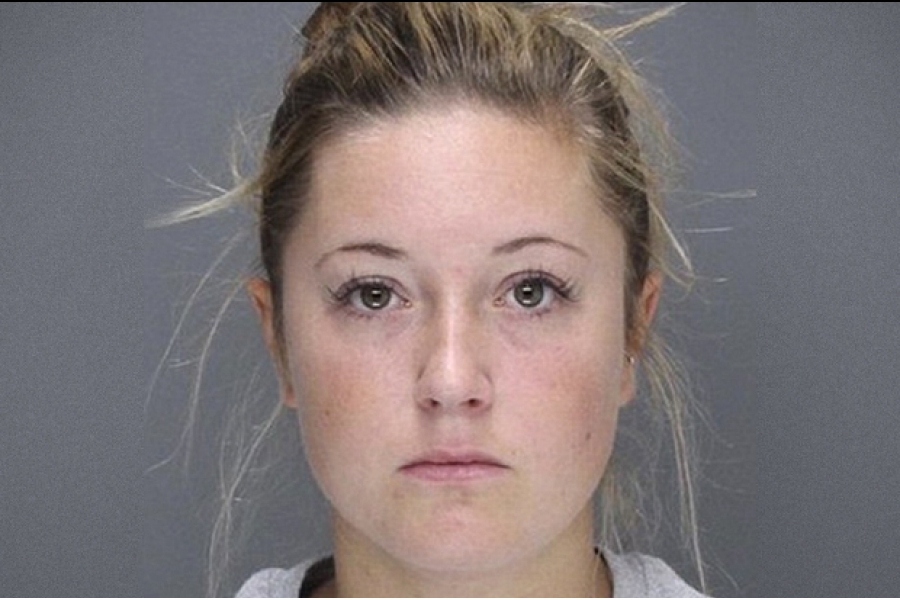Ten days after being ordered to prison, Kathryn Knott is asking a judge to reconsider her sentence.
Bill Brennan, who has taken over Knott’s defense from former counsel Louis Busico, filed a motion for reconsideration Wednesday.
It is now up to Common Pleas Judge Roxanne Covington to decide whether to grant a resentencing hearing. On Feb. 8, Covington sentenced Knott to five-10 months in prison. She was taken immediately to Riverside Correctional Facility.
Knott was convicted in December of simple assault, conspiracy to commit simple assault and two counts of reckless endangerment in connection with the September 2014 attack on gay couple Andrew Haught and Zachary Hesse.
Her co-defendants, Philip Williams and Kevin Harrigan, pleaded guilty last year, but she rejected a plea deal and took her case to trial. Williams and Harrigan are both serving probation and are required to perform community service.
The parity among their sentences serves as part of the basis for the request for reconsideration, Brennan said.
“In multi-defendant cases, courts historically have tried to show some commonality, some parity of sentences. The individuals in this matter who actually physically inflicted the harm, the striking blows, received sentences of non-incarceration,” Brennan said. “We understand that Ms. Knott exercised her right to trial but, in the final analysis, all three defendants have been adjudged guilty — two by pleas and one by a verdict — so we are going to ask the court to reconsider partially based on a disparity in the punishment imposed.”
The resentencing request also asks for a sentence that is more focused on rehabilitation, as opposed to punishment.
“Sentencing encompasses many facets, one of which is punishment, but we’d like to have more focus on the potential for the defendant to be rehabilitated,” Brennan said. “In this case, the individual has a clean background, no prior contact with the justice system, and is serving prison time for a mid-level misdemeanor.”
A rehab-focused sentence, Brennan said, could take into account community service. Williams and Harrigan were sentenced to community service at an LGBT organization, though an arrangement has yet to be made.
“This case undeniably had ripple effects on the community and city, so perhaps more focus could be placed on trying to heal those wounds through community service, which was not a component of Ms. Knott’s sentence but was of her co-defendants’. In addition to being punished, perhaps Ms. Knott could have aspects of her sentence that may attempt to start a dialogue or heal the wounds that this case has caused, not only for the victims but for the community and city.”
A decision has yet to be announced on whether Knott will appeal that sentence; that course of action, which must be decided within 30 days of the original sentence, would take her case to a new judge on an appellate court.

